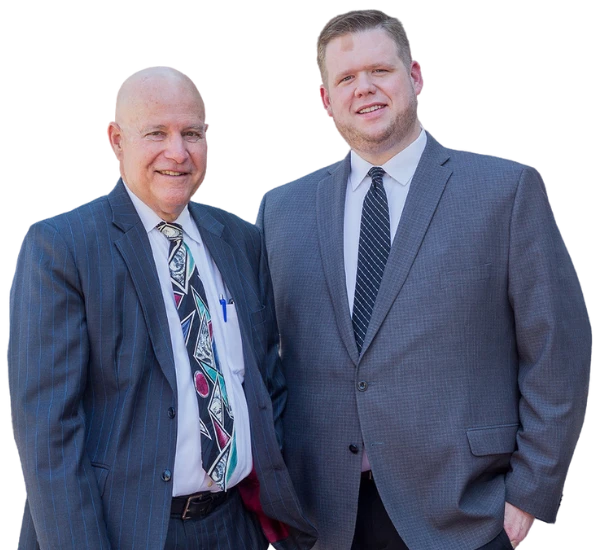
Healthcare and Advance Directive Attorneys: Ensuring Your Medical Care Wishes and End-of-Life Care Preferences are Respected

What Are Healthcare and Advanced Directives?
Healthcare and Advanced Directives (also called Medical Powers of Attorney and Living Wills) are legal documents that specify the type of medical and personal care you would want should you lose the ability to make and communicate your own decisions. Anyone over the age of 18 may execute such a directive, and these documents are legally binding in Kansas.
Your directives can specify who will make and communicate decisions for you, and they can set out the circumstances under which you would not like your life to be prolonged if, for example, you were in a coma with no reasonable chance of recovery.
A document that goes hand-in-hand with your advance directive is authorization to your medical providers to allow specified individuals to access your medical information. Without this authorization, your doctor may refuse to communicate with your hand-picked decision-maker.
Jump to Section
The Different Types of Healthcare and Advanced Directives in Kansas
1. Do Not Resuscitate (DNR) Order
A Do Not Resuscitate (DNR) order is a specific type of advance directive that instructs healthcare providers not to perform CPR or other resuscitation measures if your heart stops or if you stop breathing. A DNR order is often used by individuals who do not want to be resuscitated in the event of a terminal illness or other serious health condition.
In Kansas, a DNR order must be signed by a healthcare provider in order to be legally recognized. It is important to discuss your end-of-life care preferences with your healthcare provider and to make sure that they understand your wishes. This is not a “standard” estate planning document and is different than a Living Will.
A DNR order can be a useful tool for ensuring that your end-of-life care preferences are respected and that you are not subjected to medical interventions that you do not want. It is important to carefully consider your preferences and to make sure that you are comfortable with the choices you are making.
By creating a DNR order, you can ensure that your end-of-life care preferences are respected and that your healthcare is carried out in accordance with your wishes. Though these documents are created with your healthcare provider, you can certainly discuss them with your Schlagel Long Estate Planning Lawyer and how such a document may affect the rest of your estate plan.
2. A Living Will
A living will is another type of advance directive that is available in Kansas. A living will, also known as a "declaration to physicians," is a document that allows you to specify your end-of-life care preferences in the event that you are unable to make decisions for yourself. These documents are not the same as a DNR. A Living Will is a “standard” estate planning document and only deals with a situation where all available medical treatment has already been attempted or considered and answers the question whether you want to be kept “artificially” alive when your medical care providers believe there are no other possibilities for treatment.
A living will typically includes instructions about whether you want to receive life-sustaining treatment or be allowed to die naturally. It can also include instructions about organ donation and other end-of-life care preferences.
Like other advance directives, a living will must be signed and witnessed in some manner in order to be legally recognized in Kansas. It is important to carefully consider your preferences and to make sure that you are comfortable with the choices you are making.
By creating a living will, you can ensure that your end-of-life care preferences are respected and that your healthcare is carried out in accordance with your wishes.
3. Durable Power of Attorney
A durable power of attorney is another type of advance directive that is available in Kansas. This type of document allows you to appoint an agent to make financial and medical decisions on your behalf in the event that you are unable to do so.
A durable power of attorney can be a useful tool for ensuring that your financial and legal affairs are managed in accordance with your wishes if you become incapacitated. It can also be helpful in avoiding the need for guardianship or conservatorship if you are unable to manage your own affairs. This may apply in instances when you may acquire a cognitive or similar disorder later in life.
Like other advance directives, a durable power of attorney must be signed and witnessed in order to be legally recognized in Kansas. It is important to carefully consider your choices and to choose an agent that you trust to act in your best interests.
By creating a durable power of attorney, you can ensure that your financial and legal affairs are managed in accordance with your wishes in the event that you are unable to do so yourself.
Ensuring the Legality of Your Healthcare and Advanced Directives
1. Choose a healthcare agent for your Medical Power of Attorney
Choosing a healthcare agent is an important step in creating your medical power of attorney in Kansas. Your healthcare agent is the person you appoint to make decisions on your behalf in the event that you are unable to do so. It is important to choose someone you trust and who is willing to act on your behalf.
There are several factors to consider when choosing a healthcare agent:
- Trustworthiness: Your healthcare agent will be responsible for making important decisions on your behalf, so it is important to choose someone you trust to act in your best interests.
- Availability: Your healthcare agent should be someone who is readily available and able to make decisions in a timely manner.
- Knowledge of your wishes: It is important to choose a healthcare agent who is familiar with your end-of-life care preferences and who is willing to follow your wishes.
- Reliability: Your healthcare agent should be reliable and able to handle the responsibilities of this role.
- Ability to advocate for you: Your healthcare agent should be able to advocate for your wishes and represent your interests to healthcare providers.
By considering these factors, you can choose a healthcare agent who will be able to act on your behalf and make decisions in accordance with your wishes.
2. Decide your wishes for your Living Will
3. Sign the particular document correctly
4. Provide copies to your healthcare agent and healthcare providers
Providing copies to your healthcare agent and healthcare providers is an important step in ensuring that your advance directive is carried out in accordance with your wishes. After you have completed and signed your medical power of attorney and living will, it is a good idea to give copies to your healthcare agent and any healthcare providers that you see regularly.
Your healthcare agent is the person you appoint to make decisions on your behalf in the event that you are unable to do so. It is important to provide them with a copy of your documents so that they are aware of your end-of-life care preferences and are able to act on your behalf if necessary.
It is also important to provide copies to any healthcare providers that you see regularly. This includes your primary care physician and any specialists you may see. By providing copies to your healthcare providers, you can ensure that they are aware of your medical power of attorney and living will and can follow your wishes when providing care.
By giving copies of these documents to your healthcare agent and healthcare providers, you can help ensure that your end-of-life care preferences are respected and that your healthcare agent is able to act on your behalf if necessary.
Free Download: Estate Planning Legacy Planner

Estate Planning Legacy Planner
Everyday, we work with people who have lost someone they care about. There is so much these folks have to organize and manage. This planner organizes the information they will most need, in our experience, saving so much time and unnecessary cost. Besides organizing your information, it's so important to have a good estate plan that will keep your family out of court and conflict.
Please use the button below to receive a free copy of our Estate Planning Legacy Planner, an organization tool essential to any estate plan designed to help your loved ones take care of you and handle your affairs.
Blog Posts About Healthcare Documents
Choose Wisely and Protect Yourself When Naming a Power of Attorney
Protect Assets From Medicaid Recovery
Why Do You Need a Health Care Directive?
Don’t Overlook Key Parts of Estate Plan
Your Estate Plan Needs To Be Customized
Still Procrastinating About Your Estate Plan?
Why You Need an Advance Directive Right Now
Your Children Wish You Had an Estate Plan
